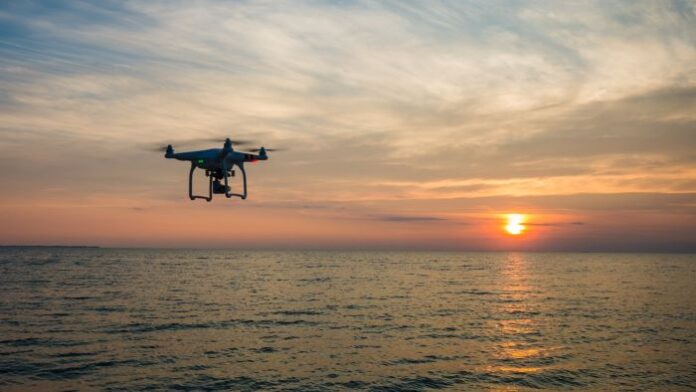The MONI.CA (air MONItoring aCross Adriatic) project, funded by the EU Interreg Italy-Croatia programme 2021-2027, is the product of the collaboration between RIT University Croatia and the professional training organisation Eduforma Srl that is developing an advanced system for monitoring air pollutants through the integrated use of gliders, drones and sensors. The mission is to create a tool capable of contributing significantly to environmental policy for the public health of citizens and territories.
The project, which aims to test this solution, has a budget of € 213,384 co, 80% financed by the European Regional Development Fund (ERDF). To date, this has enabled the development of a first prototype, including analysis software. This system’s adaptability makes it possible to vary the expenditure required for its implementation, taking into account the type of aircraft used and the specificity of the survey to be carried out. An update on the project took place recently in Padova, Italy.
Innovation
The project’s innovative element consists of using a solar glider and a drone (DJI Matrice 210 RTK v2), both equipped with state-of-the-art sensors. The glider, powered by photovoltaic panels, allows extensive coverage and the initial detection of pollutants. More targeted interventions by the drone will follow in areas with critical pollution levels. The data collected will then be made available to public bodies, providing valuable tools for developing policies based on reliable data collected soon.
Training
The project promotes interaction between governmental bodies, sectoral agencies and educational institutions. Through training and exchanges between Italian and Croatian students, MONI.CA spreads understanding of new technologies for their use, strengthens citizens’ awareness of the benefits of more sustainable behaviour, and through social campaigns launched on Instagram, Facebook, and Linkedin.
Sustainable future
The press conference held on 22 May 2024 was to inform about developments to date and encourage the involvement of key stakeholders: local, regional, and national public authorities, agencies, companies, research centres, and citizens. In addition, it aimed to disseminate achievements and discuss the application of the developed technologies to the area of the municipalities involved (Padua and Dubrovnik) to extend the project’s benefits to a broader number of beneficiaries at the national level.
In the words of Professor Martin Zagar, technical director of the project for RIT Croatia, “With the introduction of this innovation, designed to be a low-cost and energy-efficient alternative, it provides a flexible and portable solution that can be adapted to the contexts of different areas. A further strength lies in the ability to reach even the most remote areas, reducing the need for costly permanent infrastructure”.
“This initiative is a first step to deepen potential cross-border collaborations further,” echoes Eduforma President Dr. Domenico Laterza.
MONI.CA is an opportunity to open new frontiers in cooperation between Italy and Croatia, thanks to the active participation of a multitude of actors involved at the local and European levels and strengthening partnerships. Training promotes the dissemination of these innovative technologies that impact positively on sustainability and employment and bring public interest benefits to the territories involved.”
Key achievements
We have successfully designed and deployed a solar-powered glider with a dual battery system, solar panels, and a flexible array of sensors. This innovative aircraft can withstand weather conditions and remain in flight for extended periods, facilitating continuous monitoring of air quality in target areas.
The project successfully integrated advanced sensor technologies into the monitoring system through rigorous testing and validation processes. These sensors can detect a wide range of pollutants, including particulate matter, volatile organic compounds (VOCs), carbon monoxide (CO), and greenhouse gases, providing comprehensive data for air quality assessment. To ensure real-time transmission, communication and data analysis, the team has implemented advanced communication systems, including GSM GPRS modules and Arduino-based microchips. These systems enable continuous monitoring of air quality parameters and facilitate data-driven decision-making processes.
Synergies with drones for improved and enhanced monitoring: In case of high pollution levels, MONI.CA utilises a programmable drone equipped with an array of sensors to conduct detailed follow-up analyses. This collaboration between the glider and the drone improves the accuracy and precision of air quality monitoring, ensuring targeted interventions in areas of interest.
Integration of additional sensors: By the end of 2023, sensor integration validation occurred in the Laboratory for Intelligent Autonomous Systems (LARIAT), University of Dubrovnik. Temperature, hydrogen, and UV sensors were connected to the Arduino Nano, which retrieved sensor data and relayed it to the aircraft’s onboard computer, Manifold 2G, over the serial connection. The aircraft used for this integration was the DJI Matrice 210v2 RTK, and a close-up view of the sensor suite was integrated onboard the aircraft.

